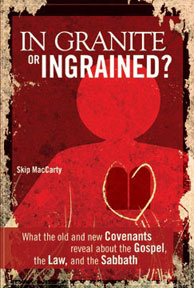I came across this wonderful passage a few months back in my personal studies. Though I was extremely impressed with the implications of it, it kind of escaped the corridors of my mind until just yesterday, when it was brought to my attention once again through a book I was reading.
Paul, in an unmatched treatise on the status of Christ, writes to the Colossians, "For it pleased the Father that in Him all the fullness should dwell" (Col 1:19; NJV - the words "the Father" are supplied). This is certainly an impressive statement to make, signifying the position that Christ holds in this universe. He is not simply a created Being, nor does He hold a position that's inferior to the Father. "All the fullness" dwells in Him.
But Paul continues, "and by Him, to reconcile all things to Himself, by Him, whether things on earth, or things in heaven, having made peace through the blood of His cross" (v. 20). A casual glance at this passage doesn't reveal much. But a few things should jump out and scream at you, begging to be explored further.
Paul first of all claims that Christ reconciled "all things to Himself." The word for "reconcile" is a Greek word that is used only three times in all of scripture. It is the word apokatallasso and - whereas the most commonly used word (katallasso, which, as you can see, is the root of our word) simply means "to reconcile" - this word means to "reconcile completely." There is no further reconciliation that can take place when apokatallasso occurs. There is a finality to it.
What I find even more significant, however, is the proposition that Paul makes in relation to who or what was needing reconciliation. Instead of simply saying that humankind needed reconciliation, Paul boldly proclaims that all things - both on earth and in heaven - needed reconciliation.

We can understand that humans on this planet certainly need reconciliation, but who on earth needed reconciliation "in heaven"?
It is, indeed, somewhat a mystery. And yet this passage is a window into the deeper issues at stake. Evidently, Christ's atoning mission wasn't merely aimed at planet earth and humankind, the whole universe needed reconciliation as well.
Surprisingly, Adventists are some of the only Christians who believe that there is life outside of earth or heaven. And yet, just the same, even if there was only life in heaven (though the Greek word is in the plural here, perhaps signifying a larger arena), aside from this earth, this passage still reveals an incredible truth. That is, the hearts of God's created beings were estranged from Him - even if ever-so-slightly. There must have been some event that triggered this.
A further meaning of the Greek word for reconciliation is to "bring back a former state of harmony." Thus, the equilibrium of the universe was thrown off for some reason previous to Christ's earthly accomplished mission.
 But in the cross-event, Christ reconciled the whole universe back into harmony with Him. In his book, In Granite or Ingrained?, Skip MacCarty writes, "In the Christ event God was revealing something breathtakingly new, even to the universe that lies beyond sin's borders, about His everlasting covenant promise and commitment to His creation" (p. 69).
But in the cross-event, Christ reconciled the whole universe back into harmony with Him. In his book, In Granite or Ingrained?, Skip MacCarty writes, "In the Christ event God was revealing something breathtakingly new, even to the universe that lies beyond sin's borders, about His everlasting covenant promise and commitment to His creation" (p. 69).Because of the cross, God's creatures - both heavenly and earthly - have a much greater appreciation for who He is. This is why Revelation records the angels as singing, "Worthy is the Lamb who was slain to receive power and riches and wisdom, And strength and honor and glory and blessing!" (Rev 5:12).
God's infinitive love rises much higher than we could ever imagine. The waves of His cross have rippled out to the farthest reaches of His endless universe, reconciling hearts that we give little thought to. Christ, indeed, didn't just become humankind's Savior, he became the Savior of the universe.

No comments:
Post a Comment